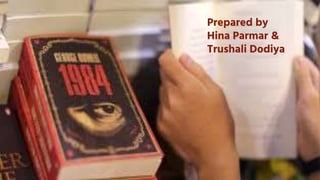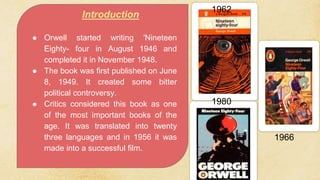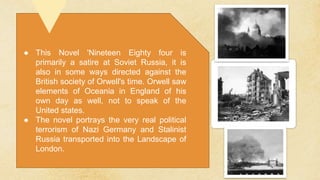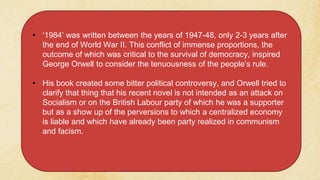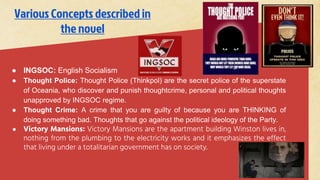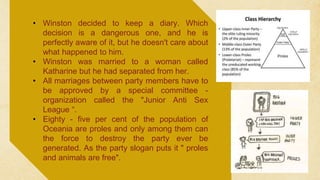This document provides an overview and analysis of George Orwell's classic novel 1984. It includes biographical information about Orwell, a summary of the plot of 1984, descriptions of major characters and concepts from the novel, and discussions of themes such as totalitarianism, control, the role of language and history, technology, and loyalty. The document examines 1984 through literary and thematic lenses to explore Orwell's warnings about totalitarian states and the importance of opposing tyranny and protecting individualism and truth.
